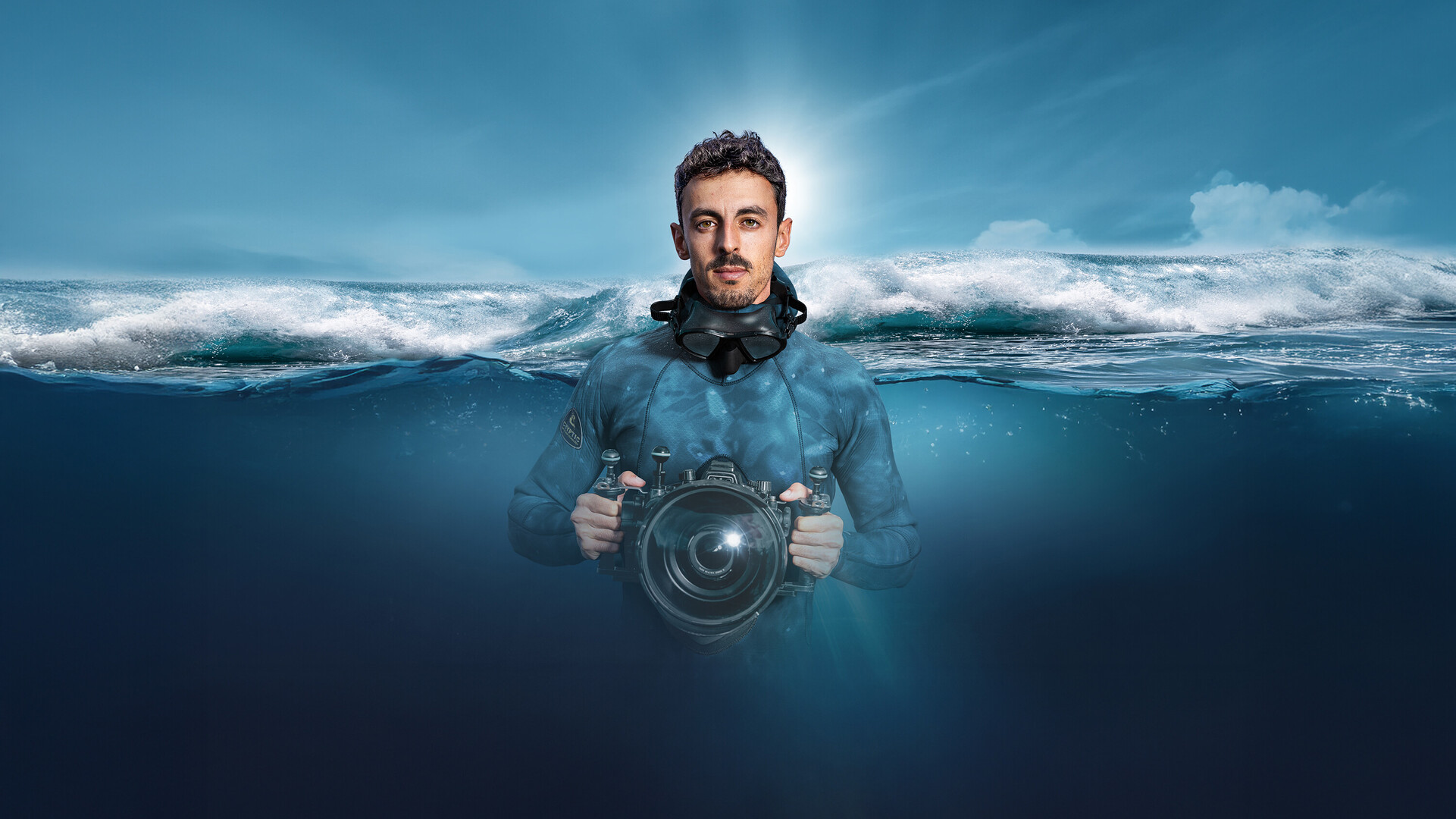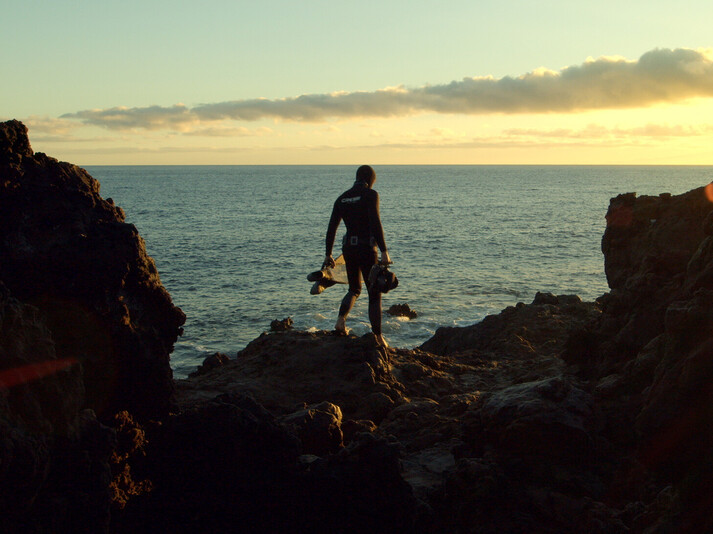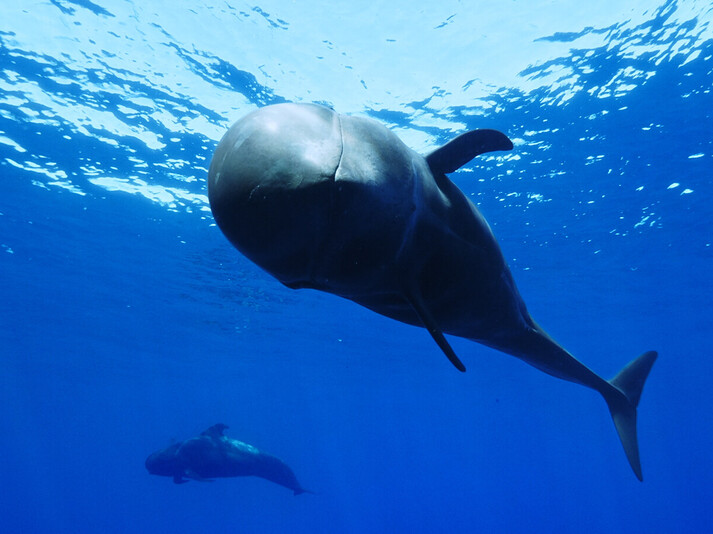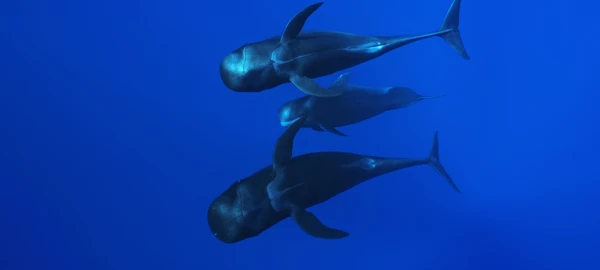
Felipe Ravina
Who is the man representing the Int. OCEAN FILM TOUR Vol. 11?

Felipe Ravina grew up in Tenerife and studied marine science at the University of Las Palmas de Gran Canaria. He has evolved from a Canarian marine researcher to a professional underwater filmmaker.
Currently, he focuses on producing underwater documentaries and is actively involved in various campaigns to raise awareness about marine biodiversity and advocate for its protection. His documentaries are a heartfelt call to preserve the environment and the unique underwater world of the Canary Islands.
NIKA - The Pilot Whale
A group of environmentalists, including Felipe Ravina, documents marine life off the coast of Tenerife to highlight the threats posed by mass tourism and environmental degradation. One day, Felipe encounters a particularly curious and almost friendly pilot whale: Nika.

Facts about Tenerife
The waters off Tenerife are a protected area
The southwestern coast of Tenerife, between Los Cristianos and Los Gigantes, is part of a designated sanctuary for whales and dolphins. This area provides ideal living conditions for pilot whales due to its abundance of food, such as squid, and deep underwater trenches.
Tenerife is located in a biological transition zone
The waters around Tenerife lie at the boundary between subtropical and temperate marine zones. This results in an astonishing diversity of species, as both tropical and colder species are found here. In addition to pilot whales and dolphins, sea turtles, hammerhead sharks, and tropical fish such as parrotfish can also be seen.
The deep sea off Tenerife is unexplored and mysterious
The island is of volcanic origin and surrounded by very deep waters, reaching depths of up to 3,000 meters. These deep-sea areas remain largely unexplored but are believed to host a variety of unknown species. The underwater trenches also provide an ideal habitat for deep-sea squid, which are the main food source for pilot whales.
Significance for Marine Conservation
The Canary Islands, including Tenerife, are a hotspot for marine conservation projects. For example, the area between Tenerife and La Gomera is one of the first European Special Areas of Conservation (SAC) for marine mammals. These measures help protect endangered species threatened by ship traffic, noise pollution, and plastic waste.
The combination of biodiversity, unique habitats, and active conservation efforts makes Tenerife one of the most fascinating places for marine biologists worldwide!

Pilot whales
Pilot whales, also known as globicephala, are fascinating marine mammals that can be found in the waters around Tenerife.
Highly social animals
Pilot whales live in stable family groups called pods. These groups often consist of 10 to 20 individuals that are closely bonded.
Physical characteristics
Pilot whales have a robust, torpedo-shaped body that can reach up to 6 meters in length and weigh up to 3 tons. Their name is derived from their distinctive rounded head shape.
Diet
Pilot whales primarily feed on squid, which they hunt in the deep waters around the Canary Islands. Thanks to their advanced echolocation, they can locate their prey even in complete darkness.
Cultural significance
In some cultures, including the Canarian one, whales are seen as symbols of wisdom and protection. This is reflected in local artworks and legends.
Whale watching as a tourist attraction
Whale watching is one of the most popular tourist activities on Tenerife. However, it is crucial to choose responsible operators who respect the animals and avoid disrupting their natural behavior.
Threats from humans
Although pilot whales are well protected in Tenerife, they are still threatened by pollution, ship traffic, and plastic waste. Their role as ambassadors for marine conservation makes them all the more significant.
Curious?
You can meet Felipe and Nika in the film NIKA - The Pilot Whale, which is part of the new film program of Vol. 11.